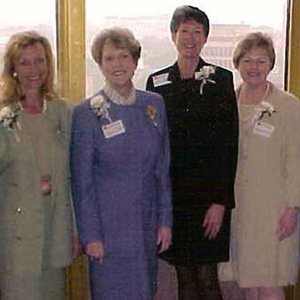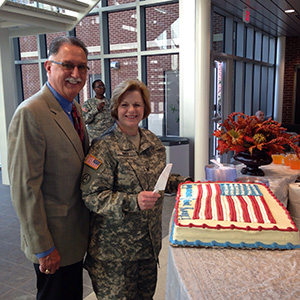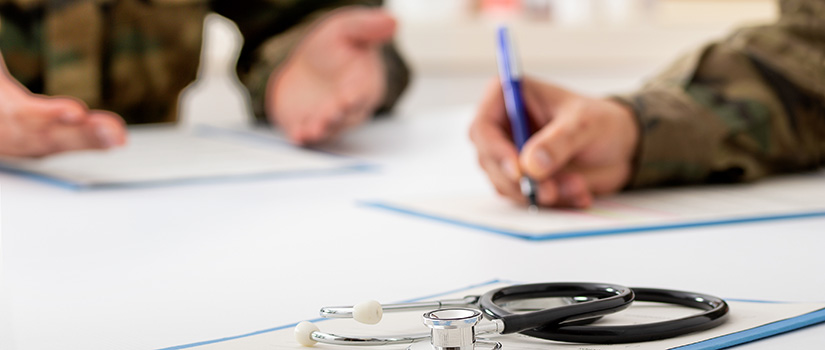Ret. Colonel Marguerite Knox Reflects on a Career of Service and Impact
Marguerite Knox (‘91 MN, ‘84 BSN, ‘81 ADN) comes from a military family, her father having served on the USS Missouri during WWII and the Korean War.
“Nursing has always been more than a career for me — it’s a calling to serve. Whether caring for patients in a hospital or soldiers on the front lines, my purpose has always been to make sure people get the care they deserve.”
From classroom to combat
Inspired by her father’s history of military service, Knox joined the South Carolina Army National Guard in 1989. Less than a year later, she deployed with other medical groups to Saudi Arabia in support of Operation Desert Storm. Knox left behind her husband, and two daughters, one at just 10 weeks old. She and her husband leaned on family for support while she spent six months overseas.
While deployed, Knox served as an Army nurse in a fixed ICU hospital. Every day she helped treat American, Saudi, Iraqi, and civilian trauma patients who arrived with life threatening injuries, infections or malnourishment. Knox even enrolled in the USC Nursing master’s of science in Nursing Administration program, earning clinical hours while in the field.
“During her deployment, we were able to facilitate some of her clinical training with a qualified NP who was also deployed in her unit,” recalls Stephanie Burgess, former program director. “The mentorship she received while deployed was invaluable and upon return to civilian life, she excelled in her subsequent other courses, and in some cases way above other students.”
The SCARNG nominated Knox for the Order of the Palmetto for her distinguished service and leadership in the military. Governor David Beasley awarded her the state's highest civilian honor in 1996, recognizing her leadership on a national and statewide level.
Advancing research for Veterans

After returning home, Knox began her career in academia as a USC Nursing assistant professor, while working as an NP in the ICU at Moncrief Army Health Clinic on Fort Jackson. It was there that she received a brief, unexpected call from the White House with little explanation. Months later, that mysterious call took shape when she was one of only two veterans asked to be part of the Clinton administration's Presidential Advisory Committee (PAC) on Gulf War Veterans' Illnesses to ensure an independent, open, and comprehensive examination of health concerns related to Gulf War service.
In a committee letter to President Clinton, Knox applied her nursing expertise and military experience as principal author to address the health consequences of exposure to low levels of chemicals. Concerns surrounding effects of biological, chemical and nuclear weapons exposure and effects on the human body grew during and after the Gulf War.
“At the time, I didn’t realize the gravity of being chosen for this committee. The PAC gave me access to network with many professionals that I would never have dreamt of,” says Knox. Later, the Department of Veterans Affairs appointed her to the Research Advisory Committee on Gulf War Veterans’ Illnesses, mandated by Congress to study the link between toxic exposures and Gulf War illness.
Knox was one of several authors, along with the Center for Disease Control, to publish an abstract introducing the effects of toxicant exposures during deployment. The committee’s early work became the foundation for Gulf War-related government research that continues today.
Leading with purpose

In 2015, she was promoted to full Colonel, a senior field-grade officer rank, and appointed as the Commander for the SC Army National Guard Medical Command during her last four years of service. The command is charged with the vital mission of ensuring more than 9,000 Guard Soldiers around the state are medically fit to perform their roles at all times.
Now retired, Knox reflects on why her 28 years of service was important, “Every soldier deserves the best level of care, and I knew I could give them that. Our soldiers truly deserve the best.”
